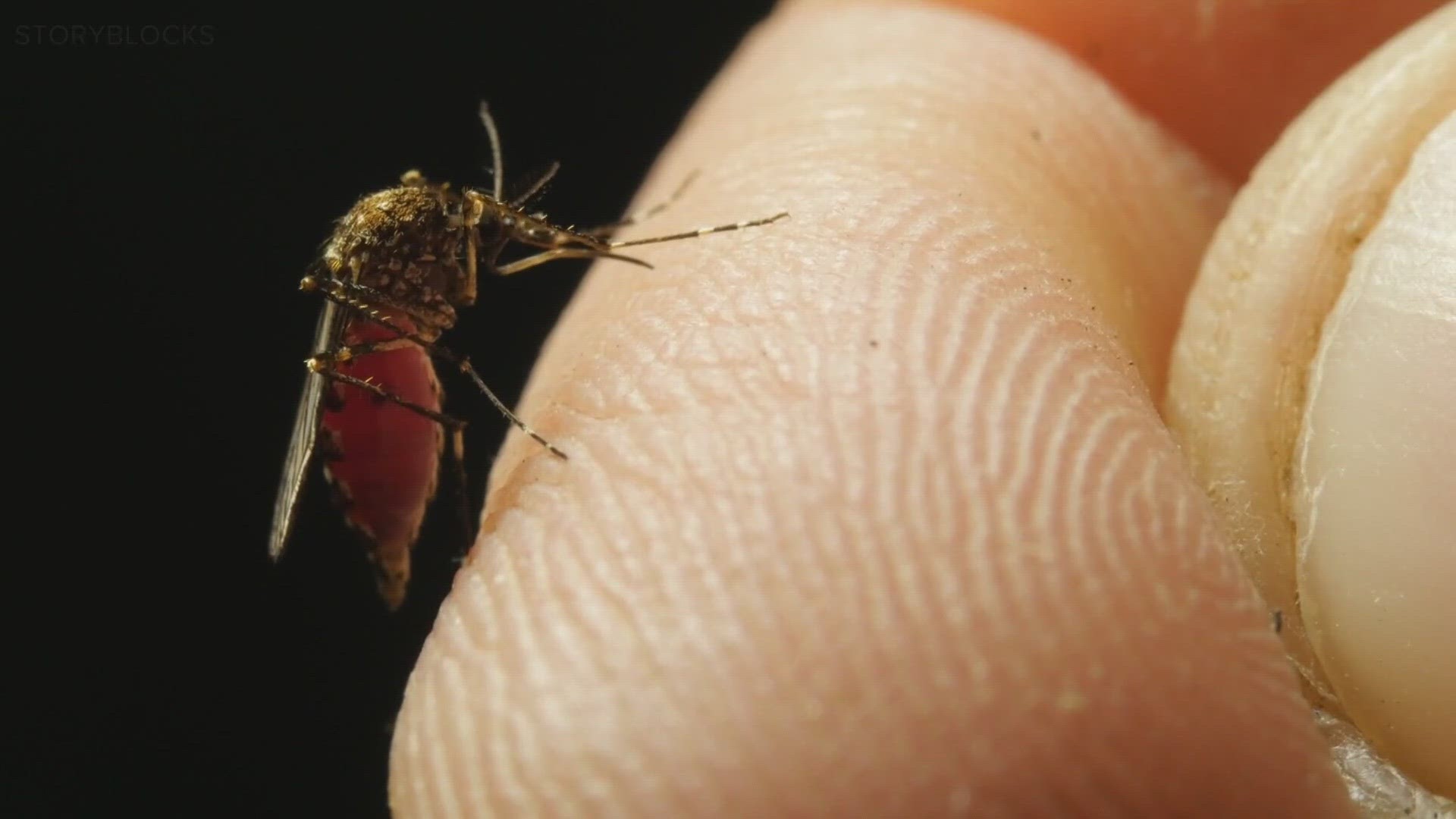LEBANON, Maine — The Maine Center for Disease Control and Prevention announced Wednesday it has identified the Eastern equine encephalitis virus in a batch of Maine mosquitos for the first time since 2019.
The mosquitos that tested positive were in the town of Lebanon in York County, the Maine CDC said in a news release.
In 2019, not only did mosquitos test positive for the virus, but a horse did, too, according to the release. A human has not tested positive for the virus in Maine since 2015.
Health Educator Megan Porter says of the numerous pools tested throughout the summer, only one came up positive for the EEE virus.
"It's highly doubtful that all fifty mosquitoes were positive, but it's probably more likely that one or two out of that group tested positive," Porter said. "When some of those mosquitoes test positive they tell us as soon as possible to get the word out."
Mosquitos can spread more than just the EEE virus in Maine. Viruses such as the Jamestown Canyon virus and West Nile virus have been documented in the past. In late August, the Jamestown Canyon virus was identified in a batch of mosquitos in Wells, and it was the first time the virus had been detected in the state since 2019.
According to Porter, mosquito pools have not tested positive for JCV in Maine since it's initial detection last month.
"These viruses spread through the bite of an infected mosquito. They cannot spread from human to human or from human to animal," the Maine CDC said Wednesday.
If humans become infected with EEE, they may not present any symptoms, while others may experience fever and flu-like illness, according to the release. More severe symptoms can include encephalitis, or brain swelling, and meningitis.
The Maine CDC said EEE can be fatal in some cases, and if you experience any symptoms, contact a health care provider immediately.
According to the Maine CDC, you can practice these safety tips to protect yourself from viruses carried by mosquitoes:
- Wear long sleeves and long pants
- Use an EPA-approved repellent on the skin and clothes
- Take extra precautions at dusk and dawn when mosquitoes are most active
- Use screens on windows and doors
- Drain artificial sources of standing water around the home where mosquitoes can lay eggs, such as bird baths, wheelbarrows, plant pots, and pet water dishes
- Take steps to prevent mosquito bites when traveling
At the University of New England, microbiologist Kristin Burkholder, who often teaches about similar diseases and viruses, explains the spread of EEE is rare.
"The normal hosts for this virus would be birds, and some mammals and amphibians," Burkholder said. "The virus will not replicate in our bodies to a high enough levels for the mosquitoes to then pick it up from us and spread it."
The Maine CDC and Burkholder also reminds Mainers that horses are particularly sensitive to EEE, and that a vaccine can be administered through a veterinarian.
Horses who become infected with a mosquito-borne illness may present the following symptoms:
- Fever
- Weakness
- Lack of coordination
If your horse presents with any of the above symptoms, the Maine CDC advises talking to your veterinarian right away.
"Maine CDC tests mosquito pools – groups of one to 50 mosquitoes collected as part of regular testing – for EEE and WNV throughout the summer months, starting in July," the release stated.
You can access the Maine CDC's weekly mosquito surveillance reports for the 2023 season here.
For more information, visit the Maine CDC's vectorborne disease webpage here.

